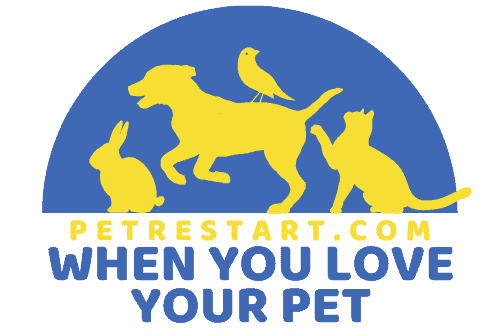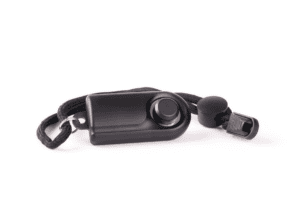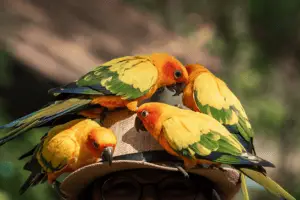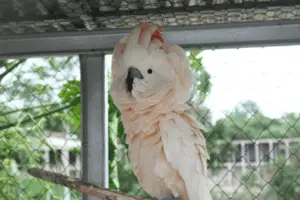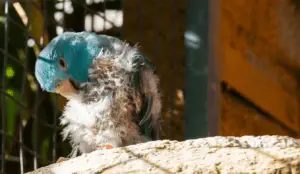The Budgie, a parakeet, is one of the most common pet birds worldwide. Budgies are known for their intelligence and playful nature; having one as a pet is a great choice. When starting your bird-keeping journey, one of the best ways to ensure your budgies stay healthy and playful is through proper diet and exercise. As such, it is integral to know what budgies can eat and what they can’t.
In this article, we will be focusing on budgies and their food choices. We will also teach you how to prepare and make dietary decisions for your parakeet. We will be discussing the following topics:
Key Takeaways
- The Do’s: What can my Budgie eat? (And budget options)
- The No-Nos: What food should my Budgie avoid?
- The nutrients of good health: Identifying macro and micros inside your favorite budgie foods
- The diet plan: Why and how to create a perfect diet plan for your Budgie
- The Budgie Feeding Know-How’s: How To Feed Your Budgie
As a birdkeeper, you are responsible for Budgie’s health and diet. There are a lot of nuances to the craft, such as portioning, planning, and tracking nutrition intake while also considering your Budgie’s likes and dislikes. After all, why bother feeding high-quality, expensive fruits if your Budgie refuses to take a bite?
Moreover, aside from “appropriate to feed,” we should also know how much we should feed a budgie and how much of each food group is healthy to eat. After all, while used interchangeably, safe food is not necessarily healthy food. In this article, let us explore the art of budgie feeding, the nuances involved, the planning and research, and learn how to be a responsible budgie owner.
The Do’s: What Can My Budgie Eat?
Budgies, like most birds, are pretty flexible with their diet. However, creating their meals is challenging, as it should be a complex, detail-oriented task that requires tedious research and planning.
As a bird keeper, ensuring that your Budgie receives the appropriate amount of nutrients and knows how to navigate your Budgie’s preferences and dislikes is critical.
However, we can vastly simplify this task by dividing our appropriate food into food groups and exploring from there. Your typical Budgie should get their daily provisions through eating the following food groups:
Budgie Food Groups
- Fruits
- Seeds
- Pellets
- Vegetables
Fruits
Fruits are an excellent, sweet treat that most budgies love to snack on! Moreover, the fruit’s vibrant and bright colors surely get your Budgie going. In fact, according to a study involving 60 bird-dispersed fruits, birds use the color of fruits as an indicator of antioxidant benefits. They are naturally attracted to colors they deem as “antioxidant-rich.”
However, we should restrict Budgie’s fruit intake. While fruits are indeed sweet, delicious treats for our budgies, they are also high in sugar.
Because of such, it is vital to use fruits as a treat instead of encompassing their primary diet. With that in mind, what fruits should our budgies eat?
The Fruity Guide: Fruits For Our Budgies
- Apples (beware of seeds)
- Kiwi
- Melons
- Berries
- Papaya
Apples
Budgies actively choose apples as an excellent food option and consume them even in their natural environment. Apples are easy to pack and effortless to purchase, depending on your location, and they grow in droves. Apples offer the following benefit to your budgies:
Apple Nutrition Facts
- Apples have simple carbs which are easy to digest for your Budgie.
- Apples have fiber that can help improve your Budgie’s digestion.
- Apples have vitamin C to help boost the immune system.
- High in antioxidants, budgies adore apples.
Other Apple Benefits
- Because of their more rigid skin, they can be great for chewing practice for your Budgie.
- Their hard shell allows them to trim their beaks, preventing beak overflow.
- Budgies love the texture and color of apples.
However, not all is well for apples. There are certain things to consider when feeding your budgie apples. In particular, their seeds can be pretty dangerous for budgies due to cyanide. We will discuss this later in the “Danger, Poison! Fruits To Avoid” section. For now, remove the seeds before feeding the apple to your Budgie.
Kiwi
Kiwis are a sweet treat that any human will surely enjoy. However, are they as good for you as they are for your budgies? Just like apples, kiwis are an excellent treat for your budgies. Not only are they sweet treats that your Budgie will surely appreciate, and they also act as excellent sources of nutrition. Let’s consider the following benefits:
The Benefits of Kiwis for Budgies
- Vitamin C: Kiwis are a great source of Vitamin C for maintaining good immune health. Moreover, it allows them to have glowing skin and prevents feather-destructive behaviors. These behaviors can be definable through actions such as over-preening and self-mutilation.
- Good bone health: Kiwi contains a considerable amount of Vitamin K, which is responsible for good bone health, and promotes healthy blood clotting and cardiovascular health.
However, like with Apples, feed Kiwis to your Budgies in moderation. Not only are they high in sugar, but they also have a lot of calories with them. They can promote poor dietary health if used as a meal substitute.
Melons
Melons are a great snack, not only for humans but for budgies as well. Their high water content always leaves you refreshed after a snack. Moreover, they are great Budgie snacks and relatively affordable, making them a great budget-friendly option for your Budgie to snack on.
Typically, melons are great due to their high vitamin C, vitamin A, potassium, and fiber content, maintaining immune health, vision, and digestive health. To prepare melons for your Budgie, do the following steps:
Melon Preparation For Budgies
- Wash the melons thoroughly and cut them into budgie-friendly sizes.
- Remove the skin of the melon, as well as the pits.
- Feed occasionally and refrigerate accordingly.
Berries
Due to their adaptive nature, Budgies have evolved to have a complex, malleable diet that ensures they can eat using local offerings. One of the most abundant fruits, especially in temperate regions, is berries. Aside from a pellet-based diet, budgies love eating berries as treats.
Berries are particularly significant because they have a size that makes them easy to prepare, and due to their tasty look, your budgies surely won’t be able to resist. Here are a few benefits of having berries in your Budgie’s diet:
Benefits of Berries For Budgies
- Antioxidants: antioxidants protect your Budgie from free radicals, allowing them to age slower.
- Fiber: fiber is excellent for promoting healthy digestion.
- Hydration: with their high water content, berries are great for budgies due to their ability to replenish a salt imbalance. Moreover, it promotes healthy organ function.
- Vitamins: berries have high Vitamin K, C, and manganese content, making them an excellent superfood for your Budgie.
Berries are a general catch-all term for fruit that’s small, pulpy, and roundish. But the term ‘berry’ is a huge umbrella term. Which berries are particularly fitting to feed budgies?
The Best Berries for Budgies
- Blackberries: blackberries are high in Vitamin C content, vitamin K, and manganese, as well as dietary fiber.
- Blueberries: blueberries are rich in antioxidants, slowing down aging, as well as containing dietary fiber and vitamin C.
- Strawberries: strawberries are rich in vitamin C and fantastic for solving digestive problems.
- Raspberries are remarkable for their manganese content and the variety of vitamins it holds.
Papaya

Papaya is a fruit that’s become a centrifugal part of many cuisines worldwide, as a dessert or as critical content in enhancing the texture of different dishes. But did you know that papaya can be a great addition to your Budgie’s diet? Yes, papayas are an excellent option for a budgie treat, and here’s why:
Why Papayas Are Great For Your Budgie
- Digestive health: papayas contain an enzyme called papain, which can be great for preventing digestion problems and can help alleviate indigestion and constipation problems.
- Rich in Vitamins: papayas contain vitamin A for vision, vitamin C for immune health, and Avia vitamin E for antioxidants, increasing budgie fertility.
- Water content: papayas have a great water content, allowing them to be refreshing snacks that promote good circulation and healthy organ function.
- Anti-inflammatory properties: papayas contain anti-inflammatory compounds in the form of antioxidants and can help alleviate inflammation and create better overall body function.
Danger, Poison! Fruits To Avoid.
Certain fruits do not play well with your Budgie’s digestive system. While it is great that you are aiming for a diverse food selection for your Budgie, there may be better options than these fruits. Here are a few fruits and fruit parts that can be critical for your Budgie’s health:
Dangerous Foods To Eat (Budgie Diet No-Nos)
- Citrus fruits: citrus are not inherently poisonous to budgies, but they are irritants that can disrupt a budgie’s digestive system, causing indigestion and diarrhea.
- Cherry pits: Cherry pits contain cyanide, and while they are not poisonous to humans due to their minuscule amount, they are lethal for budgies. Avoid cherries when selecting your Budgie’s next treat.
- Apple pits and stems: Apple seeds are also another concern for your bird. Apple seeds also contain cyanide which can be harmful in numerous amounts. Always ensure to serve your apples seedless and stemless to your Budgie.
- Avocado: Avocado is an excellent fruit for your favorite toast, but they’re not so great for budgies. The avocado’s skin, pit, and flesh contain persin, which can cause respiratory and heart problems for your Budgie. Unlike apple pits, even small amounts of avocado can be lethal, so always avoid avocado feeding to budgies.
- Spoiled and unripe fruits: rotten fruits are hazardous and can impede digestive function. On the other hand, some fruits have poisonous substances when unripe. Always ensure to buy ripe fruits.
Seeds
One of the most popular food options for budgies, especially in the wild, includes the introduction of seeds, primarily due to their preferable size and easy-to-prepare nature. Even outside human intervention, budgies love to eat seeds in the wild. Nevertheless, how good (or great) are seeds in a budgie’s diet?
Seeds contain healthy fats, minerals, and antioxidants. Moreover, they can serve as a great source of protein. However, they may not be the best regarding overall nutrition, as they lack essential macros and micros such as fiber and vitamins. Nevertheless, they can make for a great treat!
Here are some great seed options that you can count on for your Budgie’s treats:
Great Seed Treats For Budgies
- Canary seed is excellent for its abundant protein reserves and is a budgie favorite.
- Flaxseeds are an option to consider due to their high omega-3 acid content and are an excellent supplement to your Budgie’s diet.
- Budgies enjoy millet seeds best, whether sprouted or not.
- Hemp seed is another excellent source of fatty acids that can help improve your Budgie’s diet.
Pellets

Pellets are a standard diet solution for many birdkeepers and for a good reason. Not only are pellets easily acquirable and require less preparation, but they also contain a formulated mix of vitamins and minerals that your Budgie requires.
Pellets concentrate health necessities into small packaging, which, unlike most plant-based and seed-based diets, has a considerable spatial footprint but little nutritional density.
Not only that, but pellets are also incredibly convenient to use and store. They don’t spoil quickly, are easy to dispense, and are not messy and sticky. Nevertheless, it is critical to note that while pellets should be responsible for most of your Budgie’s dietary needs, they shouldn’t be the only option. Traditional seeds, fruits, and vegetables ensure your Budgie receives holistic nutritional gain.
Vegetables
Fruits and seeds are great for treats, while pellets are for daily consumption. However, leafy greens are one food group that compliments treats and pellets.
Vegetables introduce many health benefits from their nutritional content, allowing your budgies to enjoy a nutritionally dynamic diet. Introducing vegetables to your Budgie’s diet ensures they appreciate your veggies as treats and a great nutritional balancer.
However, there are a lot of vegetables available for purchase. Which ones are the best for budgies?
The Best Leafy Greens For Budgies
- Carrots are excellent sources of beta-carotene, a plant pigment precursor to Vitamin A. Beta-carotene is perfect for maintaining healthy eyesight. Moreover, you can serve carrots in many ways, either cooked or raw.
- Sweet Potatoes are affordable vegetables containing beta-carotene and Vitamin B6 and C. Like carrots, they can also be raw and cooked.
- Broccoli contains vitamins C and K, as well as antioxidants and fiber. Broccoli is a surefire way for your Budgie to experience a well-rounded, nutritionally dense diet.
Can My Budgie Eat Human Food?
Human food is delicious (for humans, at least), but are they edible for budgies too? The answer to that question is quite complex as the spectrum of what humans consider food is large. Nevertheless, we have a few tips to consider which human food is best suited for a budgie:
Best Human Food for Budgies
- Hard-boiled eggs: are healthy, non-fried protein options for your Budgie. Make sure to remove the shell before serving the egg, however.
- Rice and pasta: rice and pasta are great carb options for your Budgie and can provide the necessary energy for playtime.
- Boiled sweet potato: boiled sweet potato contains carbohydrates along with essential micronutrients.
- Leafy vegetables: these are excellent sources of fiber and contain a lot of vitamins and minerals. It would be best to consider kale, lettuce, and spinach as the go-to leafy vegetables for your Budgie.
However, with that in mind, avoid fried and salty foods to add to your Budgie’s diet. Moreover, it would be best to stick to the proper budgie diet instead of feeding them human food, as certain nuanced ingredients may threaten your budgies.
The Diet Plan: Why And How To Create A Perfect Diet Plan For Your Budgie
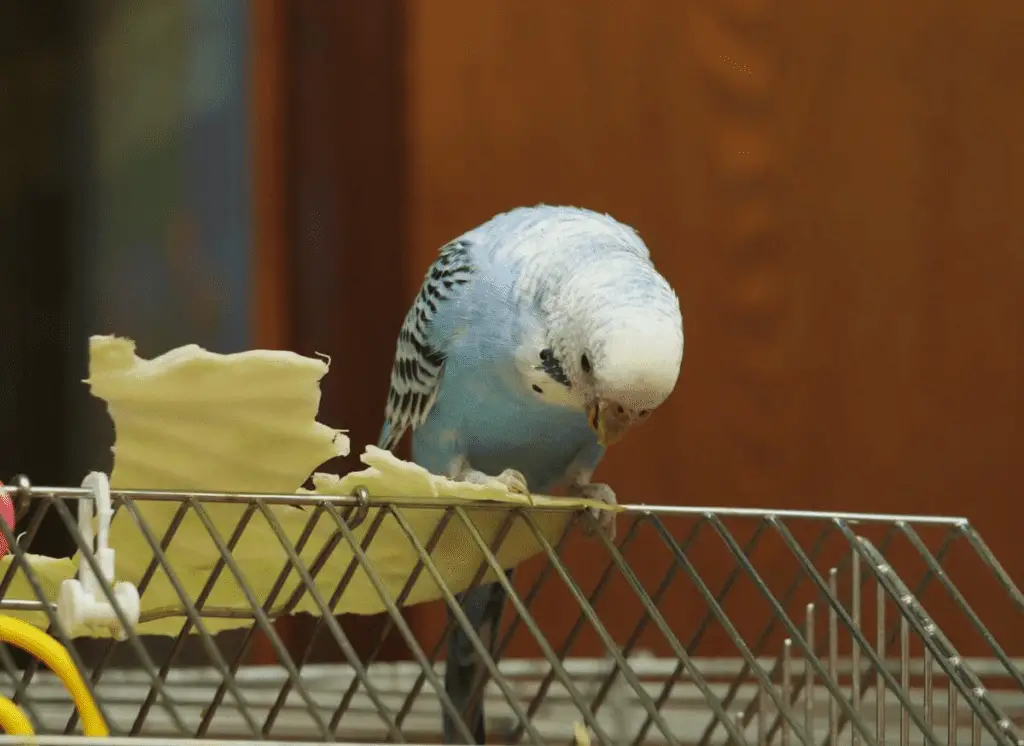
Budgies are charming and social birds that make excellent pets for beginners and experienced bird owners. However, to keep your budgies healthy and happy, you must provide them with a nutritious diet.
In this article section, we’ll discuss the essential elements of a balanced budgie diet and how to ensure that your feathered friends get the proper nutrients.
Pellet food is an excellent base diet for budgies. Pellets that are specially designed for budgies provide the appropriate amounts of essential nutrients.
Unlike seeds, pellets prevent budgies from picking and choosing their preferred options. Ensure you follow the feeding guidelines on the package and offer fresh pellets to your budgies daily.
Fresh vegetables, fruits, and seeds are a great way to supplement your budgies’ diet. Spinach, kale, broccoli, and carrots pack vitamins and minerals vital for your budgies’ health. You can give your budgies small amounts of fresh greens as treats to boost their daily nutrition. Fruits and seeds like apples and flaxseeds serve as treats that can help boost your Budgie’s morale and serve as an excellent training food.
Mineral supplements are also essential for your budgies’ health. Mineral blocks formulated for budgies or a cuttlefish bone are excellent sources of minerals that your budgies need.
Finally, ensure that clean water is always available to your budgies. Invest in a suitable water dispenser from a pet shop and clean it daily to keep the water fresh and safe for your budgies.
The Budgie Feeding Know-How’s: How To Feed Your Budgie
How Often Should I Feed My Budgie?
When preparing a diet plan for your Budgie, it can take time to grasp how much and how often you should serve a particular food group. Alas, don’t fret. We have a general guide as to how often you should feed your Budgie, as well as by how much, in this budgie comprehensive food guide:
Budgie When And How Much Food Guide
- Pellets, as they form the baseline of your Budgie’s diet, should be served once a day, typically at a tablespoon amount.
- It would be best to feed your Budgie treats such as vegetables and fruits once every two days to supplement their diet. About a tablespoon should be more than enough for your Budgie.
- Less than optimal options that are favorite options for your Budgie include seeds. You can feed them at longer intervals and use them as treats for training.
Food Purchasing Guide
Remember a few key points when purchasing fruits, vegetables, and pellets for your Budgie. To ensure that your Budgie eats optimally, you must consider certain factors instead of just buying from the nearest vet and calling it a day.
Budgie Food Purchasing Guide
- Always buy locally, as they ensure your fruits and vegetables have a smaller carbon footprint. Moreover, they provide that your Budgie is eating from a sustainable source local to your current environment.
- Ensure that you avoid chemical fertilizers and pesticides by buying organic food. When not appropriately washed, pesticides can remain in fruits and vegetables, which may harm your Budgie’s health.
Final Thoughts
Planning for a budgie’s diet can be challenging. Not only can it get time-consuming, but it is also hard to know where to start. Typically, budgies enjoy food from four groups: vegetables, fruits, pellets, and seeds.
As a baseline, pellets work great due to their nutritionally dense nature. On the other hand, vegetables and fruits help complete your Budgie’s nutrition needs. Seeds, on the other hand, can work great as treats for training.
Typically, it is optimal to feed your Budgie once a day and offer them fruits and vegetables every so often. If you keep your Budgie’s food safe, clean, organic, locally sourced, and fresh, you should be ready for your first Budgie soon!
- H. M. Schaefer, K. McGraw, and C. Catoni, “Birds Use Fruit Colour as Honest Signal of Dietary Antioxidant Rewards,” April 2, 2008, https://www.jstor.org/stable/20142806
- ” 8 Impressive Health Benefits of Apples”, Health Line, https://www.healthline.com/nutrition/10-health-benefits-of-apples#TOC_TITLE_HDR_2
- Amarson, Atli, “Antioxidants Explained in Simple Terms,” Health Line, https://www.healthline.com/nutrition/antioxidants-explained
- “Berry,” Britannica Dictionary, https://www.britannica.com/science/berry-plant-reproductive-body
- https://www.aves-avian.com/avian-vitamine-e.html
- “Avian Vitamin E”, Aves Avian, https://www.healthline.com/nutrition/8-proven-papaya-benefits
- Robertson, Ruari, “6 Super Healthy Seeds You Should Eat”, Health Line, https://www.healthline.com/nutrition/6-healthiest-seeds#TOC_TITLE_HDR_2
- “Feeding A Budgerigar,” New Plymouth District Pet Group, https://www.npvet.co.nz/pets/animal-info-pets/bird-rabbit-turtle-articles/feeding-a-budgerigar/
